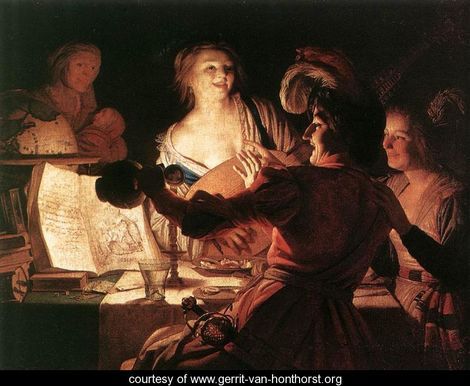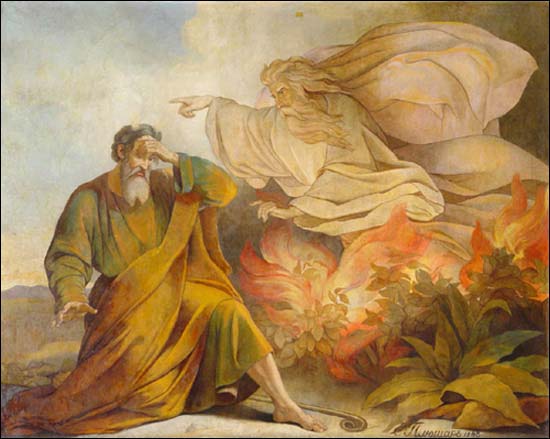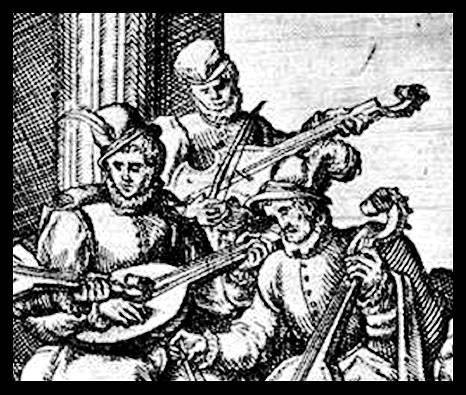Romance Lurked in the Corners
THE ELIZABETHAN PRODIGALS
by Richard Helgerson
University of California Press, 1976

What a shining example Edward de Vere, 17th earl of Oxford, must have been to the up-and-coming writers of Helgerson’s study: George Gascoigne, John Lyly, Robert Greene, Thomas Lodge and Philip Sidney. Tales of prodigality saturate accounts of the earl’s life, no matter how brief. High points of this bad-boy biography include his penchant for spending, drinking, wenching, rioting, lying, reckless swordplay and in general wasting hours in idleness and lewd poetry, without ever once holding “a real job”.
After his father’s death in 1561, Oxford entered William Cecil’s household just in time to appreciate the uproar created by misbehaving son Thomas, for whom Cecil had composed his first set of precepts on how to be a virtuous subject and serve the Commonwealth while on his continental tour. Years later, when his favored son Robert was about to embark on the same journey, with all its pitfalls of temptation, Lord Burghley revised his notes to Thomas into the more famous precepts, which Shakespeare seems to have parodied in Polonius. Chances are that Burghley had Oxford’s naughty escapades in Italy in mind when writing this second set of precepts.
Helgerson’s choice of prodigals reflect the London literary scene of the decade between late 1570 to late 1580, beginning soon after Oxford’s return from Italy with perfumed gloves for the queen and a young choir boy named Orazio for himself. Greene and Lyly both dedicated works to the earl; Philip Sidney was his rival in love and poetry, while Gascoigne and Lodge at one time delighted in the same sort of roistering company that wreaked havoc on Oxford’s marriage to Anne Cecil. Although Helgerson misses the opportunity to assess the earl’s premier place among Elizabethan prodigals, his compact survey of these Prodigal Narratives shows a neat fit with Oxford’s personal history as William Cecil’s ward and then son-in-law. Indeed, Helgerson identifies Cecil and his utlitarian views on education as a prime influence on the younger generation:
In a patriarchal state, deriving its moral authority from its likeness to the family, Burghley, whom Peele addressed as parens patriae, was the archetypal father. He was, moreover, the most active and powerful advocate of the ideals of mid-century English humanism…
Perhaps with Father Burghley’s admonitory finger-wagging in mind, young George Whetstone (Burghley’s neighbor in Stamford) takes a reformatory stance when hawking his wares to members of his own generation:
…in plucking off the vizard of self-conceit under which I sometimes proudly masked with vain desires, other young gentlemen may reform their wanton lives in seeing the fond and fruitless success of my fantastical imaginations, which be no other than poems of honest love, and yet, for that the exercise we use in reading loving discourses seldom, in my conceit, acquiteth our pains with anything beneficial unto the commonweal or very profitable to ourselves, I thought the “Garden of Unthriftiness” the meetest title I could give them.
Several of Oxford’s poems toy with the conceits of honest love, vain desires and unrewarded pains:
“Possessed by desire/No sweeter life I try/Than in her love to die”
“So he that takes the pain to pen the book…”
“And others yet do gather them, that took less pain I know”
“If care or skill could conquer vain desire…”
“Who loves aloft and sets his heart on high/Deserves no pain, though he do pine and die”
“Desire can have no greater pain/Than for to see another man/That he desireth to obtain”
With some justification, we can imagine the earl smiling at Whetstone’s sly apology for his addiction to writing love poems. This same protest of reformatory zeal appeared a decade earlier, in the pious prefaces of Brooke and Golding, when publishing translations of seductively Romantic or Pagan literature. Duly forewarned, with the reformist authorities appeased, English readers were now free to enjoy these wanton toys. As Helgerson notes,
…it has become usual to distinguish between the Elizabethan fathers and their sons by identifying one group with mid-century English humanism and the other with Italianate and romantic courtliness, opposing “the wisdom of a Burghley” to “the graces of a Sidney.
For students of Oxford’s life, this passage may call to mind Gabriel Harvey’s poem mocking the “Tuscanish” earl and the fruits of his travels. Did Oxford’s tales from Italy have some small influence on Helgerson’s band of prodigal brothers? The possibility – and swift dismissal – inevitably comes up in his chapter on Lyly, but rather than his customary acuity, here the author pleads obscurity:
Nor is it clear that the viciousness of Oxford’s life led him as a patron to prefer licentious writing. As Hunter remarks, Oxford ‘commanded’ his ‘loving friend’ Thomas Bedingfield to translate Cardan’s Comfort into English (1573) and this argues seriousness of mind and sobriety of taste.
Sober in 1573, a year spent in the arms of a Venetian courtesan may have affected the earl’s tastes. Unfortunately, Helgerson overlooked the many dedications to Oxford of Courtly Romances and Love Poetry, by Munday, Greene and Watson. Combined with his patronage of Lyly’s Euphues, these connections put the “sober” earl at the epicenter of Elizabethan literary rebellion. Helgerson deftly summarizes the stakes in this generational struggle at the end of chapter 2:
…The highest officers of the realm proclaimed the attitudes of conservative, mid-century humanism for all to hear; but romance, however much it might try to disguise itself as another form of humanistic admonition, lurked in the corners, passing in manuscript from hand to hand, never venturing into print without an apology. Humanism belonged to the hierarchical relations of father and son, schoolmaster and pupil, elder and younger; romance to the egalitarian commerce of friend with friend – those lewd and flattering companions whom fathers and prodigal son plays continually warn against. Humanism inhabited the masculine and misogynistic world of school and state; romance “had rather be shut in a lady’s casket than open in a scholar’s study”.
If Edward de Vere contributed to the Prodigal literature of this decade – as Harvey’s “feeble pen” address at Audley End suggests, no matter how you spin it – would he have kept his trifles shut in a lady’s casket, away from his father-in-law’s unappreciative eye? Or clap a vizard on his vain conceits and fantastical imaginations? ~Marie Merkel
Follow-up studies influenced by The Elizabethan Prodigals:
Redefining Elizabethan Literature by Georgia E. Brown, 2004
Sons and Authors in Elizabethan England by Derek B. Alwes, 2004



Recent Comments